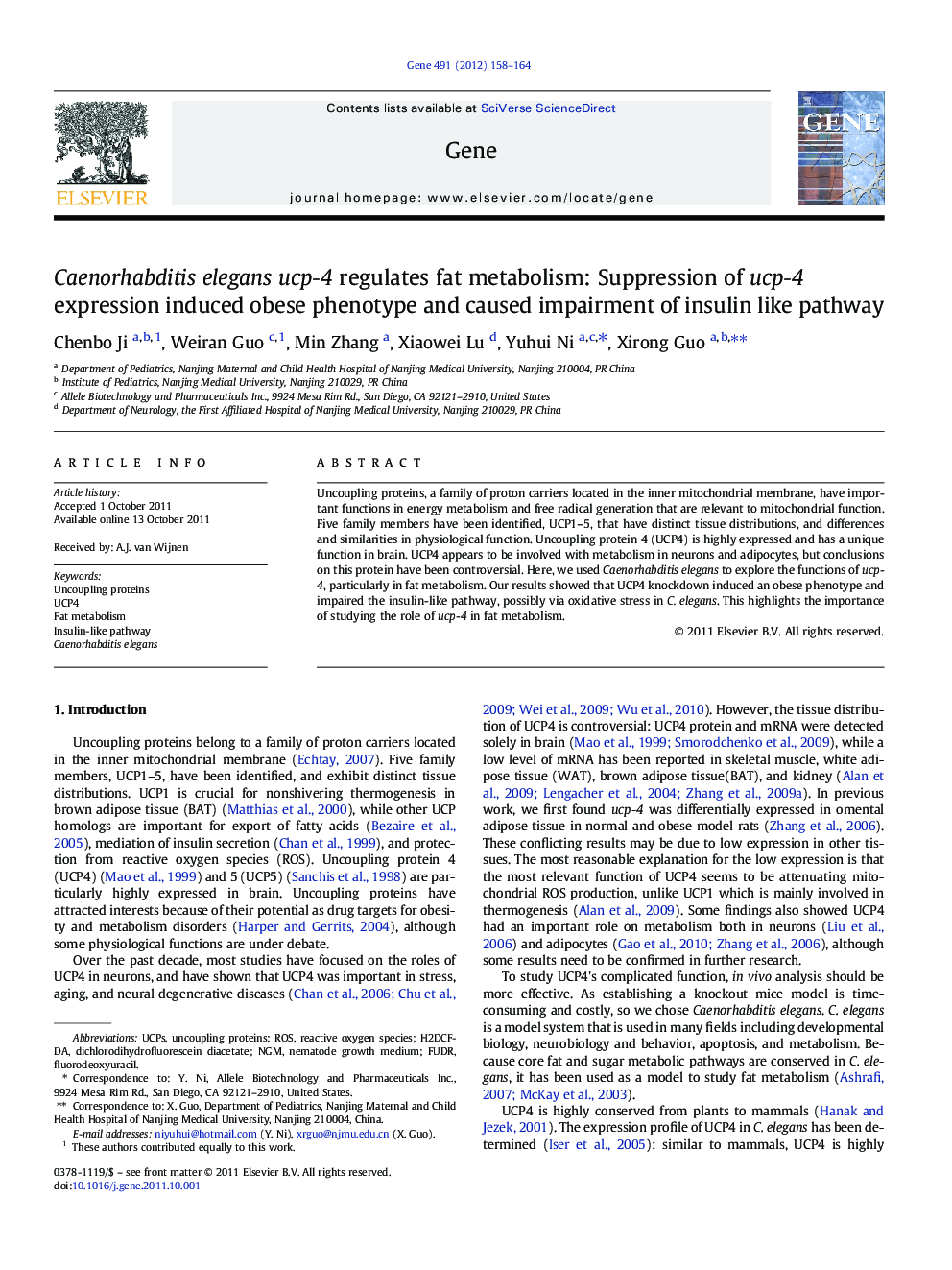| Article ID | Journal | Published Year | Pages | File Type |
|---|---|---|---|---|
| 2818192 | Gene | 2012 | 7 Pages |
Uncoupling proteins, a family of proton carriers located in the inner mitochondrial membrane, have important functions in energy metabolism and free radical generation that are relevant to mitochondrial function. Five family members have been identified, UCP1–5, that have distinct tissue distributions, and differences and similarities in physiological function. Uncoupling protein 4 (UCP4) is highly expressed and has a unique function in brain. UCP4 appears to be involved with metabolism in neurons and adipocytes, but conclusions on this protein have been controversial. Here, we used Caenorhabditis elegans to explore the functions of ucp-4, particularly in fat metabolism. Our results showed that UCP4 knockdown induced an obese phenotype and impaired the insulin-like pathway, possibly via oxidative stress in C. elegans. This highlights the importance of studying the role of ucp-4 in fat metabolism.
► We used C.elegans to explore the functions of ucp-4, particularly in fat metabolism. ► Suppression of ucp-4 expression induced an obese phenotype. ► UCP4 influenced insulin resistance possibly via the hexosamine-signaling pathway.
